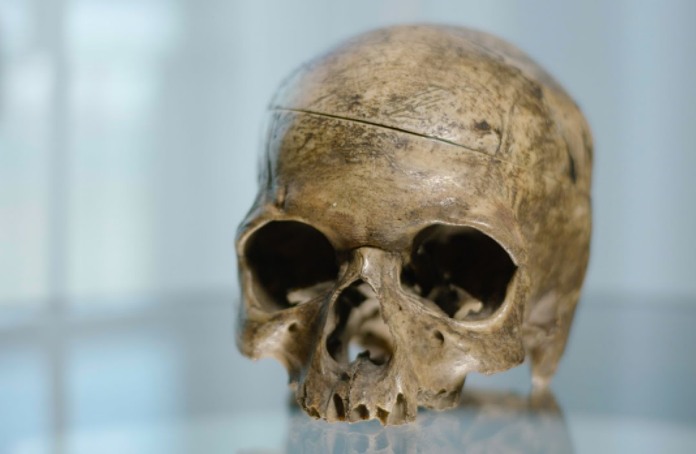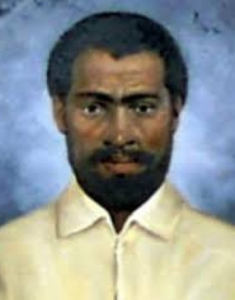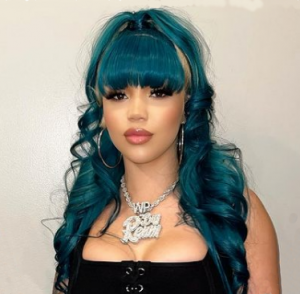About Nat Turner
Born into slavery, an African-American preacher who led the four-day rebellion of enslaved and free black people in Southampton County, Virginia in 1831 is named for Nat Turner. He made history as the leader of one of the bloodiest slave revolts in America on 21st August 1831. Spreading terror throughout the white South, his action set off a new wave of oppressive legislation prohibiting the education, movement, and assembly of slaves and stiffened proslavery, antiabolitionist convictions that persisted in that region until the American Civil War (1861-1965). Following the insurrection, he hid for six weeks, but he was eventually caught and later hanged. The rebelling slaves killed around 60 white people, but over 100 slaves were later killed by white militias as revenge. The incident ended the emancipation movement in that region and led to even harsher laws against slaves. He also became an icon of the 1960s Black Power movement. He was hanged on November 11, 1831, in Jerusalem, Virginia. He was mentioned in the Pulitzer Prize-winning book "The Confessions of Nat Turner" by William Styron.
Recent in the news, Kanye West compares himself to Nat Turner, says he's not releasing music until he's 'Done' with Sony & Universal contracts. Those waiting for Kanye West's "Donda" album are going to have to wait a bit longer. "On God ... in Jesus' name ... come and get me," he continued. In January 2019, West filed a pair of lawsuits against EMI, the song publisher that has administered the rights to his songs since 2003, and against Roc-a-Fella Records, UMG Recordings, Def Jam, and Bravado International Group. West followed up with another tweet demanding apologies "immediately" from J. Cole and Drake, both of whom he has feuded with in the past. "I’m Nat Turner ... I’m fighting for us," he wrote, comparing himself to the American slave who led a Virginia rebellion for freedom in 1831. He added I need a public apology from J Cole and Drake to start with immediately ... I’m Nat Turner ... I’m fighting for us.
Nat Turner was famous for being one of the most controversial characters of nineteenth-century America. He was best known for being an icon of the black power movement in the US.

Source: @thefamouspeople
Nat Turner was born into slavery on 2nd October 1800. His place of birth was in Southampton Country, Virginia, an area with more blacks than whites. His nationality was American and his ethnicity was African-American. His race was black. He was Christian by religion and his Zodiac sign was Libra. He was recorded as "Nat" by Benjamin Turner, his family’s ownership. When Benjamin Turner died in 1810, Nat was inherited as property by Benjamin's son Samuel Turner. He was born to his mother, Nancy (mother), and his father). His mother, Nancy was a house slave at the Turner household. He knew little about the background of his father, who was believed to have escaped from slavery when Turner was a young boy. It is believed that his mother came to Norfolk in the year 1795 with her previous master, a refugee from Saint Domingue, and was later sold to Benjamin Turner. When he was very young, he was very close to his parental grandmother Old Bridget, also a slave at the Turner plantation. She originally belonged to the Akan tribe, which resided in areas we now call Ghana. She was captured at 13 and was shipped to America as a slave. He then learned how to read and write at a young age. He was also recognized for having "natural intelligence and quickness of apprehension, surpassed by few". He grew up deeply religious and was often seen fasting, praying, or immersed in reading the stories of the Bible and he also had visions which he interpreted as messages from God, and these visions influenced his life. After the death of Benjamin Turner in the year 1810, his brother Samuel became Nat's new owner. According to another account, Samuel purchased a new property consisting of 360 acres of land just two miles away from the original home. He wanted to start a new plantation there and Nat, his mother Nancy, and grandmother Old Bridget were loaned to him for that purpose. When Benjamin died in 1810, the arrangement became permanent. He lastly celebrated his 31st birthday.
Nat Turner was a very strong person with a brave heart. He had got a perfect body with average body weight. Further details about his body measurement have not been disclosed until now.
Nat Turner's Death
Turner was hanged on November 11 in Jerusalem, Virginia at the age of 31. According to some sources, he was beheaded as an example to frighten other would-be rebels. He received no formal burial; his headless remains were possibly buried in an unmarked grave. His skull was kept as a trophy. It later changed many hands. In the year 2002, a skull said to have been Turner's was given to Richard G. Hatcher, the former mayor of Gary, Indiana, for the collection of a civil rights museum he planned to build there.
Nat Turner's Later Life
- At the age of twenty-one, Nat Turner ran away from Samuel Turner and returned a month later after becoming delirious from hunger and receiving a vision that told him to "return to the service of my earthly master".
- After the death of Samuel, his property was liquidated and Nat Turner was sold off to Thomas Moore for $400 while Cherry was sold to Giles Reese, another plantation owner.
- He then had his second vision in 1824 while working in the fields under a new owner, Thomas Moore. In it, "the Saviour was about to lay down the yoke he had borne for the sins of men, and the great day of judgment was at hand".
- Later, Thomas Moore, his master, died a few months and Moore's young son Putnam became Nat's new owner.
Nat Turner: The Rebellion
- Nat Turner claimed certain atmospheric conditions as a sign to begin preparations for a rebellion against slaveowners in the starting of February 1831.
- An annular solar eclipse was visible in Virginia which was coincidentally Abraham Lincoln's 22nd birthday on 12th February 1831 and Nat strongly believed the eclipse to be a sign that it was time to revolt.
- After that, he planned to begin the rebellion on 4th July Independence Day, 1831, with his four trusted friends: Hark Travis, Henry Porter, Sam Francis, and Nelson Williams but due to his illness, it was delayed.
- Later, Virginia experienced another solar eclipse on 13th August. Because of certain atmospheric conditions, the sun appeared bluish-green. And Nat interpreted it as a sign of God and decided that it was time to strike.
- He began the rebellion a week later, on 21st August. Some other sources put the date to August 22. The time was 2 O'clock at night.
- The group had around seventy black volunteers armed with hatchets, axes, and knives. The rebels traveled from house to house, freeing slaves and killing all the white people whom they encountered. The rebellion did not discriminate by age or sex and members killed white men, women, and children.
- The black rebels killed approximately 60 white people before they were defeated by a white militia. By the next morning, only twenty of the rebels remained by his side.
- He gathered more people by persuading them but his army was defeated.
- He himself went into hiding in the Dismal Swamp area and stayed there for one month.
- After that, on 30th October 1831, a white farmer named Benjamin Phipps discovered him hidden among the local Nottoway people, in a depression in the earth, created by a large, fallen tree that was covered with fence rails.
- He surrendered without confrontation and was imprisoned in County Jail. His "Confession" was taken by Dr. Thomas R. Gray.
- He was put on trial on 5th November 1831 at Southampton County Court for "conspiring to rebel and making insurrection”.
- He was hanged on November 11 in Jerusalem, Virginia, and his corpse was drawn and quartered. According to some sources, he was beheaded as an example to frighten other would-be rebels. He received no formal burial; his headless remains were possibly buried in an unmarked grave.
- His skull was kept as a trophy. It later changed many hands.

Source:@youtube
- After Turner's execution, Thomas Ruffin Gray published "The Confessions of Nat Turner". His book was derived partly from research Gray did while Turner was in hiding and partly from jailhouse conversations with Turner before trial.
- In an 1843 speech at the National Negro Convention, Henry Highland Garnet, a former slave, and active abolitionist described Nat Turner as "patriotic", saying that "future generations will remember him among the noble and brave."
- In 1861 Thomas Wentworth Higginson, a northern writer, praised him in a seminal article published in Atlantic Monthly.
- In the 21st century, writing after the September 11 attacks in the United States, William L. Andrews drew analogies between Turner and modern "religio-political terrorists". Additionally, he suggested that the "spiritual logic" explicated in Confessions of Nat Turner warrants study as "a harbinger of the spiritualizing violence of today's jihads and crusades."
- Moreover,
- "The Narrative of the Life of Henry Box Brown", a slave narrative by an escaped slave, refers to the rebellion.
- Harriet Beecher Stowe included a copy of Turner's confessions as an appendix to her 1855 novel "Dred: A Tale of the Great Dismal Swamp".
- William Cooper Nell wrote an account of Turner in his history book "The Colored Patriots" of the American Revolution, 1855.
- Harriet Ann Jacobs, also an escaped slave, refers to Turner in her 1861 narrative, "Incidents in the Life of a Slave Girl".
- Nat Turner's Rebellion is featured in Episode 5 of the 1977 TV miniseries "Roots".
- In 2007 cartoonist and comic book author Kyle Baker wrote a two-part comic book about Turner and his uprising, which was called "Nat Turner".
- Reef the Lost Cauze 2008 album "A Vicious Cycle" includes the song "Nat Turner", which tells a fictionalized first-person account of events.
- "The Birth of a Nation", the 2016 film starring, produced, and directed by Nate Parker, co-written with Jean McGianni Celestin, is about Turner's 1831 rebellion. The film also stars Gabrielle Union, was sold in January 2016 at the Sundance Film Festival for a record-breaking $17.5 million.
- J. Cole mentions Nat Turner in lyrics to the song "Folger's Crystals." "Nat Turner in my past life, Bob Marley in my last life, back again."
- Lecrae rapped a line in his song "Freedom" that said, "I gave Chief Keef my number in New York this summer, I told him, 'I could get you free,' I'm on my Nat Turner."
- Nat Turner is honored in numerous black history books including 100 Greatest African Americans by Molefi Kete Asante, Extraordinary Black Americans from Colonial to Contemporary Times by Susan Altman, and African Americans Voices Of Triumph: Perseverance.
- In the year 2018, the play "Nat Turner" in Jerusalem, by Nathan Alan Davis, was produced at the Forum Theatre (Washington, D.C.)
Nat Turner's Wife
Nat Turner is a married man. It is believed that he married a slave girl named Cherry. Cherry was later sold to Giles Reese which created separation for them. There is no further details about his marital details, children, affairs, and relationship. His sexual orientation was straight and he was not gay.
Nat Turner's Net Worth
There is no clue about his net worth and salary. No sources have revealed about his net worth and earnings.






